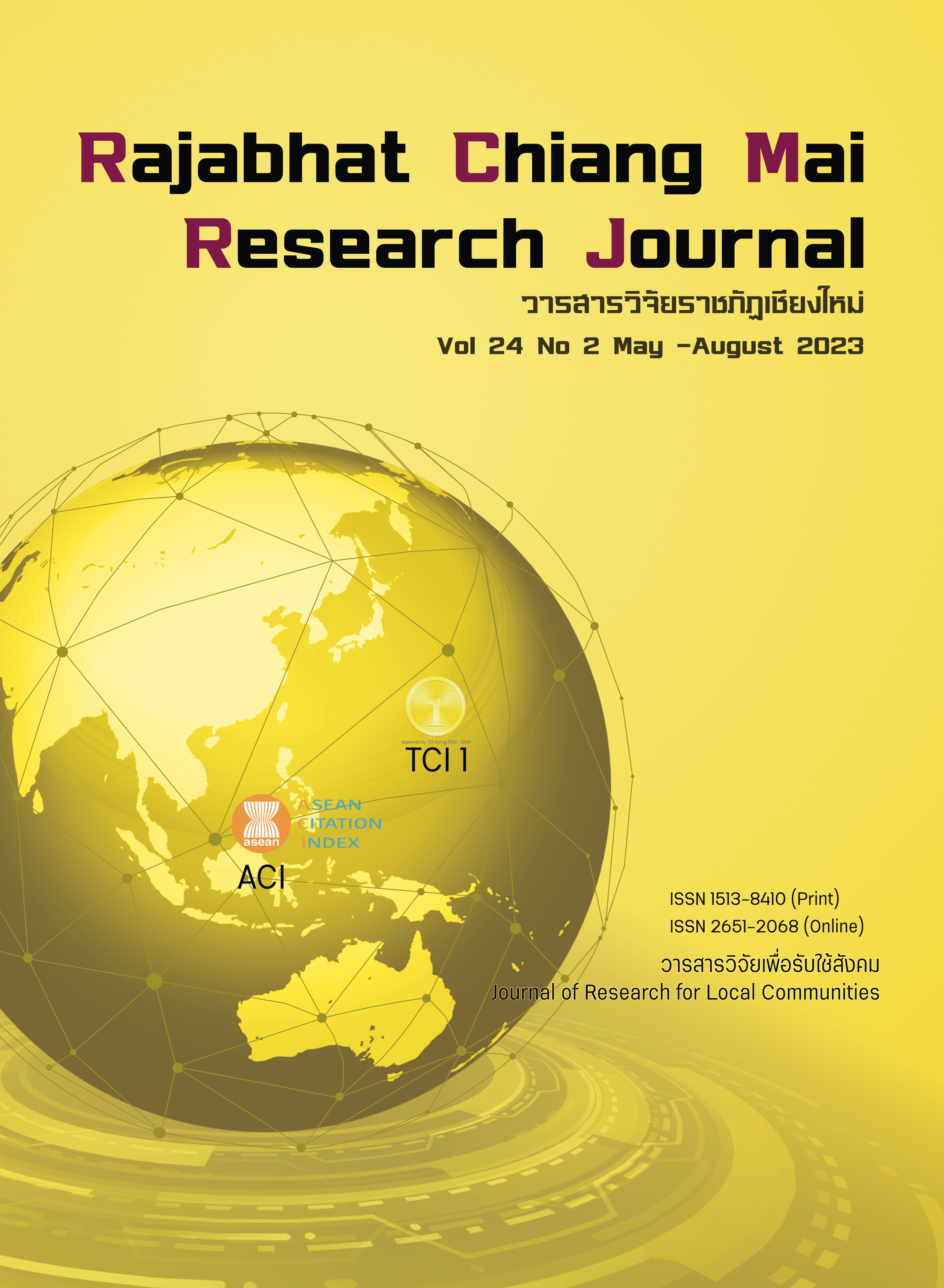Development of Competency-Based Learning Management Training Curriculum to Enhance Teachers’ Competency
DOI:
https://doi.org/10.57260/rcmrj.2023.262621Keywords:
Curriculum development, Competency-based learning management, Training curriculumAbstract
The goals of this study were to: (1) create and evaluate a competency-based learning management training curriculum to improve teachers' competencies; (2) compare teachers' competencies before and after the training curriculum was implemented; and (3) investigate trainees' satisfaction with the competency-based learning management training curriculum to improve teachers' competencies. The following three research and development phases were used in conducting the study: to improve instructors' capabilities, the first step is to establish and evaluate the training program for learning management. The study produced a document that includes training programs that last a total of 24 hours for the learning management training curriculum. Five specialists were given the plans to assess the suitability of the course manual and curriculum for learning management. A guidebook for learning management training was created via study. The study tools comprised a competency-based learning management cognition test ability assessment form for learning management plan creation, a competency-based learning management training curriculum evaluation form, and curriculum manual evaluation form. Then in step two, the training program was put into practice with a sample of 30 participants that was chosen on purpose. This study used a one-group pretest-posttest design, and the data were analyzed using the means, standard deviations, and reliable t-tests, and the third step examined how satisfied trainees were with the execution of the program.
The research results found that: 1. the created training curriculum emphasizes group learning and employs a role-played teaching methodology with 8 components, including the curriculum's background, guiding principles, objectives, content, and structure, as well as training activities, training sessions, instructional materials, assessment, and evaluation. The designed training curriculum scored highly for appropriateness and scored similarly for the curriculum manual in the findings of the curriculum quality evaluation, 2. according to the results of the training curriculum's implementation, (1) teachers' competency-based learning management design knowledge and understanding were significantly higher than before at the.05 level, and (2) teachers' competency-based learning management design ability and evaluation measures were at 70%, which was higher than the stated criteria and significantly higher than before training at the.05 level, and 3. The degree of teachers' satisfaction with the competence-based learning management training curriculum to improve instructors' competency was 0.5.
Downloads
References
Buasri, T. (1999). Designand Development course Theory. Bangkok : The Printing House of the Teachers council. (In Thai)
Khammanee, T. (2012). Pedagogical Science. knowledge for organizing effective learning Processes.Bangkok : Chulalongkorn University. (In Thai)
Kuder, G. & Richardson, M. (1937). The theory of estimation of test reliability. Psychometrika.
Ministry of Education. (2017). Strategic plan educational development (2562-2565). Office of the Permanent Secretary Ministry of Education. (In Thai)
Rattanapoka, J. (2008). The development of a knowledge management model based on professional competencies. (Thesis. Master of Education, Prince of Songkla University). (In Thai)
Reungsri, S. & Dhedchawanagon, K. (2021). Context and Factors Affecting the Process of Preparing Teachers for Multicultural Classrooms. RMUTL Journal of Business Administration and Liberal Arts, 9(1), 59-75. https://so05.tci-thaijo.org/index.php/balajhss/article/view/247575 (In Thai)
Thayrueakham, S. (2008). Research Methods for Humanities and social sciences. Printing 2 Kalasin : Prasan typing. (In Thai)
Thareekate, O., Patphol, M., Wongyai, W., & Poomsa-ard, S. (2016). The Development of Enrichment curriculum to Enhance learner Person characteristics for students of Primary school. Veridian E-Journal Silpakorn University, 9(1), 1549-1564. https://he02.tci-thaijo.org/index.php/Veridian-E-Journal/article/view/61871 (In Thai)
The Secretariat of the Education Council. (2019). Guidelines for developing student competency education level basic. Nonthaburi: 21st Century. (In Thai)
Downloads
Published
How to Cite
Issue
Section
License
Copyright (c) 2023 Rajabhat Chiang Mai Research Journal

This work is licensed under a Creative Commons Attribution-NonCommercial-NoDerivatives 4.0 International License.
1. Articles, information, content, images, etc published in the “Community and Social Development Journal” are copyrighted by the Community and Social Development Journal, Chiang Mai Rajabhat University. In order to properly distribute the articles through print and electronic media, the authors still hold the copyright for the published articles under the Creative Commons Attribution (CC BY) license, which allows the re-distribution of the articles in other sources. References must be made to the articles in the journal. The authors are responsible for requesting permission to reproduce copyrighted content from other sources.
2. The content of the articles appearing in the journal is the direct responsibility of the article authors. The editorial board of the journal does not necessarily agree with or share any responsibility.














